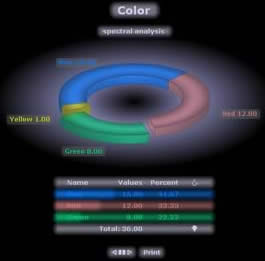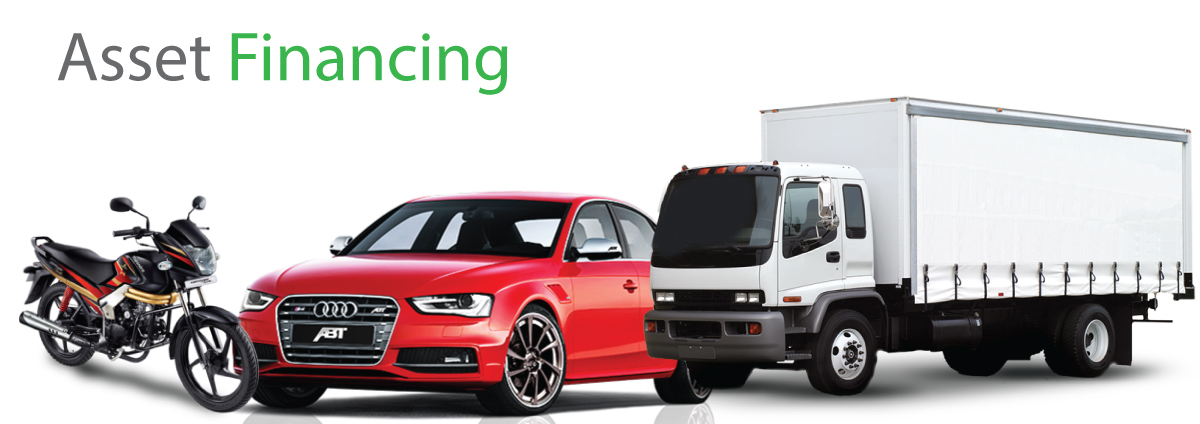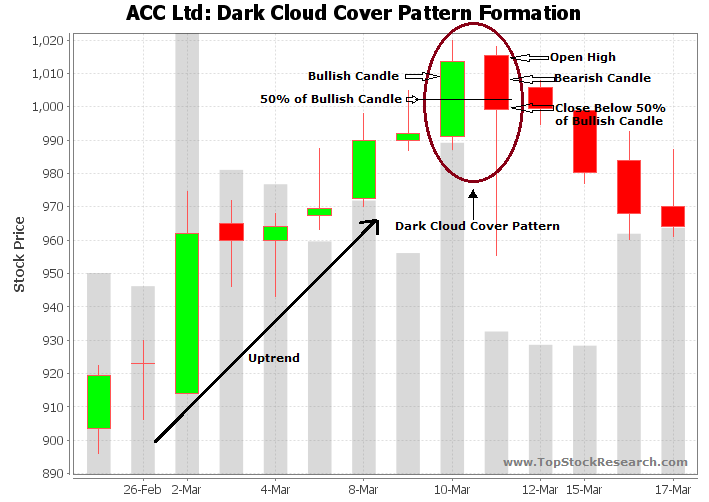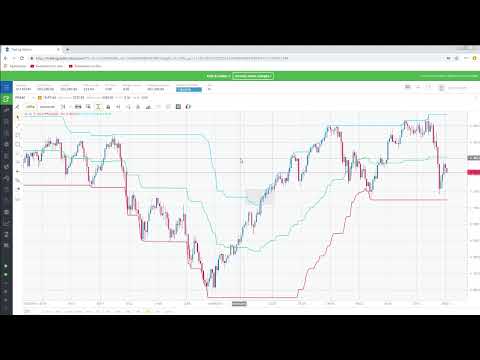Contents:


Thus, proper appraisal of the overall financial needs of the farmer and adoption of supervisory credit system in farm financing operations will bring the desired results. Save taxes with ClearTax by investing in tax saving mutual funds online. Our experts suggest the best funds and you can get high returns by investing directly or through SIP. It considers return over the entire life of the project and therefore serves better as a measure of profitability. Cost benefit analysis in financial terms means revenue earned or cost saving as a results of the decision, initiative pursued on projects.
The smarter way to invest is to choose direct plans in order to minimize the expense ratio. The expense ratio can also be used to compare two funds and choose which one to invest in if they belong to the same category. This is because while you invest in a direct fund through the AMC or platforms like ET Money, regular mutual funds are distributed through mutual fund distributors. Hence, the commission to the distributor also becomes a part of the expense ratio.
It is evident from the examples above that the higher the expense ratio, the lower your returns will be. At the same time, a higher expense ratio does not imply it’s a better mutual fund. A fund with a lower expense ratio can be equally or more capable of producing better returns. Broadly speaking, the costs mentioned above comprise the mutual fund expense ratio. While there is encouragement for production finance, consumption credit is discouraged at all levels. The CRAFICARD recommended consumption credit if it is meant to increase family labour productivity.
SEC Tackles Digital Assets in Reopened Proposal to Reinterpret … – JD Supra
SEC Tackles Digital Assets in Reopened Proposal to Reinterpret ….
Posted: Fri, 05 May 2023 21:02:03 GMT [source]
The expense ratio is the percentage that denotes the amount of money you are paying to the AMC as a fee to manage your investments. In other words, it is the per-unit cost for running and managing the mutual fund. You do not pay for this expense ratio separately; it is calculated as a percentage of the daily investment value. Although the farm more net income, create good finance extended to a farmer may yield repaying capacity and buildup risk bearing ability he will not repay the loan unless he has good character. The second principle deals with the capacity of the borrower who not only produce more but also has to repay the loan in time.
This would keep the records maintained and help in determining if your business is performing efficiently. The mutual fund NAV is calculated after deducting the expense ratio every day; hence, the returns are net of the expenses. In other words, the returns expressed are what the investors gathered after deducting the expense ratio.
Benefit cost Ratio
Although this evaluative technique is relatively simple, straight ahead, and versatile, there are a number of arguments in opposition to using a value profit analysis as a choice-making tool. The Benefit-Cost Ratio is a financial appraisal technique that is used to evaluate the financial viability of an investment or project. It is calculated by dividing the present value of the project’s benefits by the present value of the project’s costs. The BCR helps decision-makers to understand the cost-effectiveness of an investment or project by comparing the monetary benefits it will generate to the costs of implementing it.

Profitability, on the other hand, is a relative number which is equal to the ratio between profit and revenue. Comparing current profits to profits from previous accounting periods helps you understand the growth of the business. It has a higher impact on debt funds because the returns from debt funds are relatively lower. Deducting the expense ratio from the returns can make them ill-equipped to beat inflation. The expense ratio impacts debt funds more because of the relatively lower returns. A return of 7% with an expense ratio of 2% will be reduced to 5% and won’t be good enough to beat inflation.
How do you calculate benefits?
People may assume that, when optimistic cash flows are generated through the course of a project , the money will be reinvested on the challenge’s price of return. While IRR is a very popular metric in estimating a venture’s profitability, it may be deceptive if used alone. Some elements in these areas can’t be accurately measured, a lot less quantified. For small businesses, operating a benefit-to-price calculation is a bit like wanting into a crystal ball. It lets you weigh the long-time period advantages of a selected venture towards the costs related to that project. A good benefit-to-value analysis measures each the monetary and non-monetary features of the challenge as a result of generally a project’s value cannot be appreciated in purely quantitative phrases.
• The project is expected to deliver a positive net present value to an organization and its investors if a project has a BCR greater than 1.0. A cost-benefit analysis is an approach that businesses use to analyze which decisions to consider and which one to let go of. This monetary evaluation method helps to identify effective and favorable options and helps to take informed decisions. This easy example exhibits that Cost Benefit Analysis is a helpful calculation software in economics that is used while evaluating multiple projects. The advantages and disadvantages of the profit cost ratio make it possible to gauge threat with extra certainty.
Learning to discern if the fee-benefit evaluation formula leads to a constructive or unfavorable result’s important to understanding if a strategic plan is viable. In the BCR formula, the numerator represents the present value of the benefits generated by the project, which could include revenues, savings, or other positive impacts. The denominator represents the present value of the costs of implementing the project, which could include initial investment costs, ongoing operating costs, and other negative impacts.
Things to Remember about Expense Ratio
In many models, a cost-benefit analysis will also factor THE OPPORTUNITY COST into the decision-making process. Opportunity costs are alternative benefits that could have been realized when choosing one alternative over another. In other words, the opportunity cost is the forgone or missed opportunity as a result of a choice or decision. Factoring in opportunity costs allows project managers to weigh the benefits from alternative courses of action and not merely the current path or choice being considered in the cost-benefit analysis. However, the BCR does not give any indication of how much economic value will be created. There is a risk in making any enterprise choice that leads an organization forward.
Generally, correct price–profit evaluation identifies selections which increase welfare from a utilitarian perspective. Aggregate the columns and decide whether the advantages outweigh the costs of the decision. Some elements are extra qualitative and should be transformed right into a utility worth that’s difficult to quantify. A special discount rate is highlighted within the IRR, which stands for Internal Rate of Return. By determining extra of these variables, you’ll be able to create a BCR that is more correct, which then leads you to a call that is extra confident.
The analysis is normally performed prior to implementation of project plans and is based on time-weighted estimates of costs and predicted value of benefits. The actual data is analyzed from an accounting perspective after the project is completed to quantify the financial impact of the project. Assuming an accurate CBA, altering the status quo by implementing the choice with the lowest cost–profit ratio can enhance Pareto efficiency.
PBF ENERGY INC. Management’s Discussion and Analysis of … – Marketscreener.com
PBF ENERGY INC. Management’s Discussion and Analysis of ….
Posted: Fri, 05 May 2023 11:04:10 GMT [source]
It involves measurable financial metrics like revenue earned, costs saved etc. as a result of the decision to pursue a project. Other capital budgeting analysis methods, including net present value and IRR, could be mores suitable. Present Value models state that an amount of money or cash in the present day is worth more than receiving the amount in the future since today’s money could be invested and earn income.
A benefit-cost ratio is a ratio utilized in a cost-profit evaluation to summarize the overall relationship between the relative prices and advantages of a proposed venture. If a venture has a BCR higher than 1.0, the venture is predicted to deliver a positive internet present worth to a firm and its traders. Another problem with relying on NPV is that it does not present an general image of the gain or lack of executing a sure venture.
Components of Expense Ratio
In the given example, project will be break even in first year itself and advisable to go ahead with this project. It is very important to note what all comes under Cost, Benefit and overall duration to calculate ROI. Every programme or project before implementation, the sponsor wants to see the ROI for which the Cost Benefit Analysis becomes very important to take the decision.
Are there any situations where organizations give an exception and still take up projects that do not have favorable cost-benefit analysis? Yes, there may be instances where Business may need to go ahead with a Project even though there is no Profit or not much return on Investment. Few examples could be Projects related to enhancing the Customer satisfaction, Employee satisfaction, gaining more Market Share or in case of Regulatory compliance. Some of these projects may see a negative CBA in short term however indirectly it is building the Reputation and Brand for the Company. During this, it’s important to consider the payback time, to ascertain how long will it take to reach the break-even point or what is the duration any solution will be deployed or contract period. Organisation providing free transport, food, gifts etc. to employees to their employees to increase their employee satisfaction though these results in cost to the company.
- Comparing current profits to profits from previous accounting periods helps you understand the growth of the business.
- We have /regression modelling, Valuation and forecasting techniques are some of the tools used for Cost Benefit analysis.
- Further you can also file TDS returns, generate Form-16, use our Tax Calculator software, claim HRA, check refund status and generate rent receipts for Income Tax Filing.
- If a venture’s BCR is less than 1.zero, the venture’s prices outweigh the advantages, and it should not be thought-about.
benefit cost ratio less than 1 means-benefit analysis refers to comparing the projected benefits versus the costs connected with a project/initiative decision to determine whether it makes sense from a business perspective. That means a project which is significantly above 1 should be considered. If the benefit cost ratio is below 1, then the costs are expected to be greater than the profits, so the idea should be abandoned. Here are the advantages and disadvantages to consider when using the benefit cost ratio. If a project has a BCR greater than 1.0, the project is expected to deliver a positive net present value to a firm and its investors. If a project’s BCR is less than 1.0, the project’s costs outweigh the benefits, and it should not be considered.
This cost is passed on to the investors as a percentage of your investment value and is called the mutual fund expense ratio. An IRR calculation acts like an inverted compounding growth rate; it has to discount the growth from the preliminary investment in addition to reinvested cash flows. However, the IRR does not paint a practical image of how cash flows are literally pumped back into future projects.

Presently, the owner of the company has more work than he can cope with, and he is outsourcing to other design firms at a cost of $50/hour. The company outsources 100 hours of work on an average basis each month. Dynamic Graphic Works has been operating for just over a year, and sales are exceeding targets. Presently, 2 designers are working full time, and the owner is evaluating increasing capacity to meet demand. This would involve leasing more space along with hiring two additional new designers.
However, if the costs outweigh the benefits, the company may want to rethink the decision or project. It is an evaluation of the expected steadiness of benefits and costs, together with an account of any options and the established order. CBA helps predict whether or not the advantages of a policy outweigh its costs , relative to other alternate options. Conversely, if the IRR on a challenge or funding is decrease than the price of capital, then the most effective plan of action may be to reject it.
PAR PACIFIC HOLDINGS, INC. MANAGEMENT’S DISCUSSION … – Marketscreener.com
PAR PACIFIC HOLDINGS, INC. MANAGEMENT’S DISCUSSION ….
Posted: Fri, 05 May 2023 19:46:04 GMT [source]
Gross profit helps you understand the costs needed to generate revenue. When the value of the cost of goods sold increases, the gross profit value decreases, so you have less money to deal with your operating expenses. When the COGS value decreases, there will be an increase in profit, meaning you will have more money to spend for your business operations. Each day, a portion of your corpus is being paid to the fund house as the expense ratio, thereby reducing the returns. And irrespective of whether the returns are positive or negative, this expense ratio must be paid until you stay invested. You can find the expense ratio for your mutual fund scheme on ET Money.

